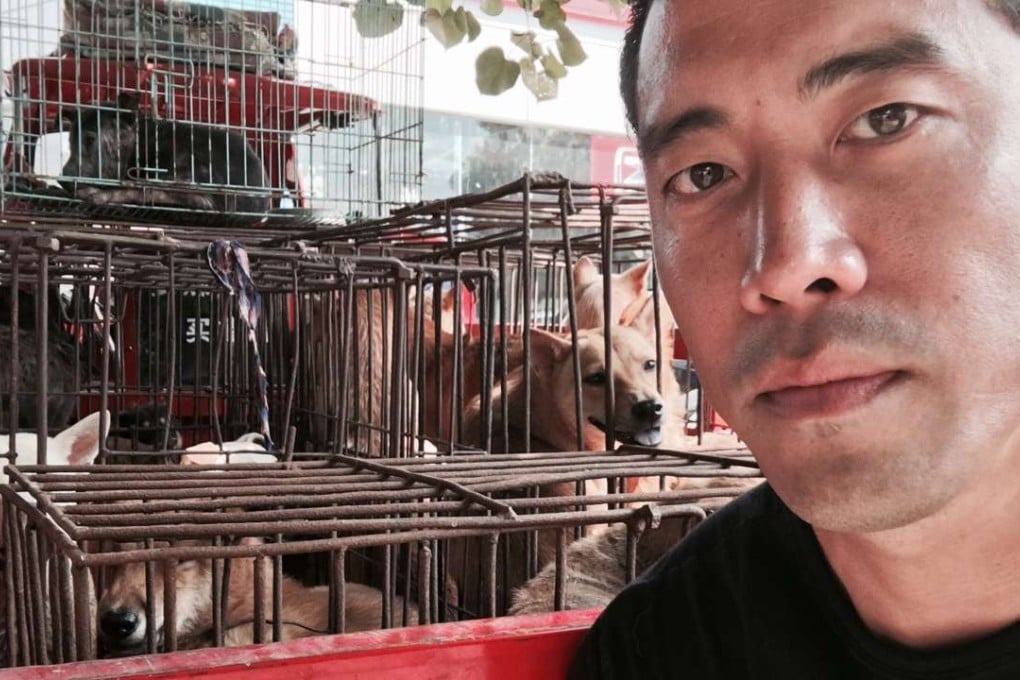How Yulin dog rescuer Marc Ching went from hero to hounded
Asian-American animal crusader Marc Ching had been hailed for his efforts to save dogs from slaughter during the annual Yulin festival, until last June when his biggest rescue attempt ended in disaster

It’s 9am on midsummer’s day in the Guangxi Zhuang autonomous region and self-styled animal-welfare crusader Marc Ching is choking back tears as he stands in front of a small group of foreign volunteers in a hotel room 8km from the notorious Yulin dog-meat festival.
“Today we are doing something that no other group has done,” says the charismatic 37-year-old Asian American, rallying his supporters ahead of what will be his most ambitious rescue yet. “We are shutting down slaughterhouses in Yulin.”
Female volunteers from the United States and Britain who have flown to China in response to a Facebook appeal by Ching’s California-based Animal Hope and Wellness Foundation dab their eyes as his address rises to a crescendo.
“Not everybody can say that they’re here today,” Ching says, his voice now cracking with emotion. “Stay strong and be proud. We have a chance to change history and this is it. This is where the battle is and we are on the ground. This is it – history. Save these dogs.”
Watch Marc Ching brief the volunteers ahead of their action